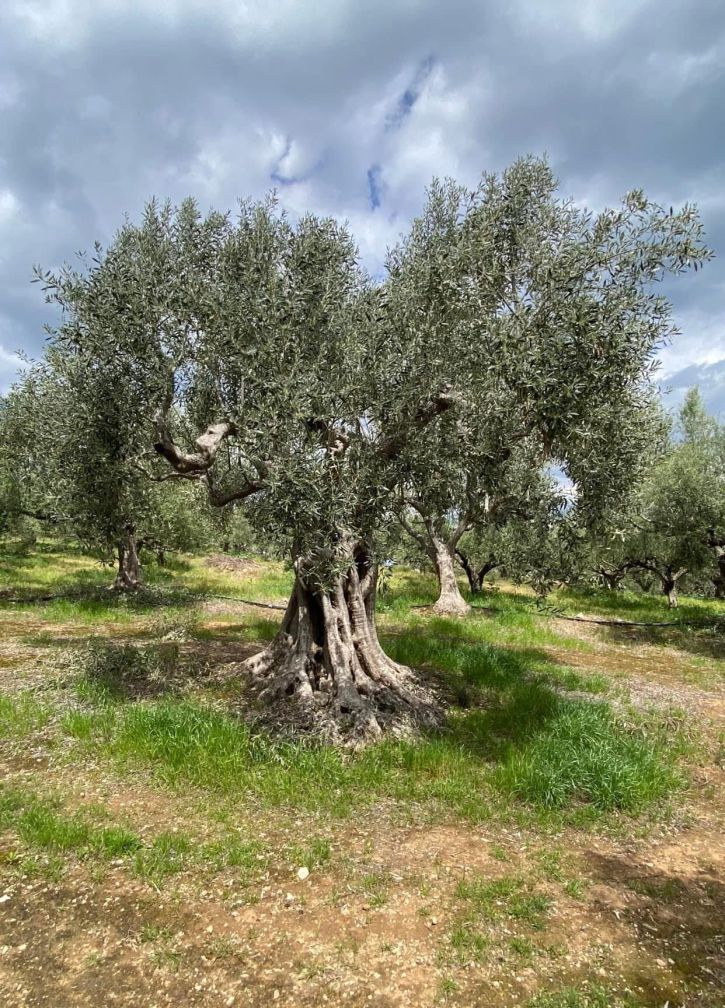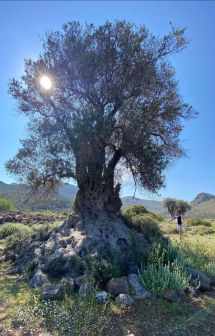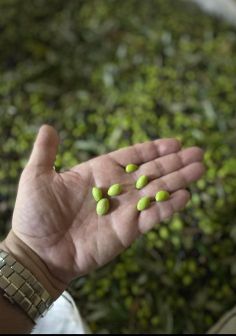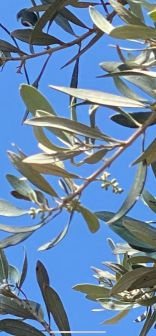Liquid gold according to Homer, the cornerstone of the Mediterranean diet, the protagonist of our cuisine, our olive oil.
Its benefits are many, and its uses even more. In ancient times, the olive tree, the tree of the goddess Athena, was a symbol of peace, fertility, purification, victory, and power, as well as a fundamental element of nutrition and more. It was essential for lighting lamps, for the care of women's bodies and hair, for heating, and more.
In the Hippocratic Code, it is mentioned for over 60 medicinal uses for skin disorders, gynecological issues, wounds, burns, and other ailments. The olive tree was revered and considered sacred. Aristotle stated that anyone who cut down or uprooted an olive tree would be judged in the Areopagus. If found guilty, they would be sentenced to death.
The production of olive oil followed the following process. First, the olives were beaten and crushed in a wooden trough with a hole at the bottom for the exit of the olive paste. Then, the paste was placed in a press where the extraction was done using weights attached to ropes at the edge of the beam. This way, the oil would flow and go through a pipe into a clay vessel.
The first oil was used for consumption, the second for ointments and medicinal purposes, and the third for lamps.
In modern times, olive oil is the basis of the Mediterranean and healthy diet due to its monounsaturated fats and antioxidant properties. It is rich in vitamins A, D, E, K, iron, antioxidants, anti-inflammatory and antibacterial properties (it can block or kill Helicobacter pylori bacteria), aids in weight loss, improves blood flow with its omega-3 fatty acids, enhances sexual life, helps fight certain types of cancer, boosts the immune system, contributing to longevity. It also helps prevent cardiovascular disease, diabetes, and Alzheimer's.
It is anti-aging, protects against free radicals, and preserves cell oxidation.
For cooking, olive oil is the most suitable oil. The best way is to add it at the end of cooking, as this way the valuable ingredients are not altered. The flavor of our food will be lighter, tastier, and with all its precious ingredients because it is simply olive juice and not fatty substances like seed oils.
In frying, olive oil is the ideal solution because it remains stable due to its antioxidant substances at high temperatures, as it withstands higher temperatures than seed oils (200°C instead of 170°C).
However, in frequent frying, olive oil transforms into trans fat and can cause damage to our health.
Store olive oil in a cool, dark place. Heat and light reduce its shelf life. When you want to store it in a container, you can use glass bottles and seal them tightly.
We can "play" with flavors for our salad or cooking by adding herbs (rosemary, thyme, oregano, laurel, etc.), garlic, hot peppers, and more to the bottles.
We grew up with pure olive oil in our grandmothers' and mothers' cooking, and we will continue to grow up correctly along with the next generations.
And as Odysseas Elytis said, "If Greece were to be completely destroyed, there would remain an olive tree, a vine, and a boat. These are enough to rebuild it from scratch."
LATEST RECIPES
GET LATEST UPDATES
Newsletter Subscribe
FEATURED ARTICLE

GET LATEST UPDATES
Newsletter Subscribe




























































































